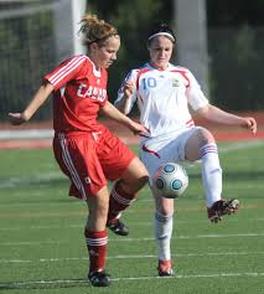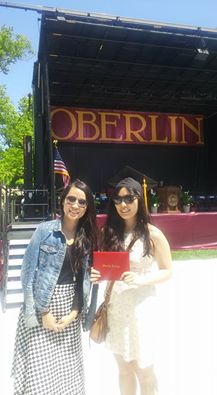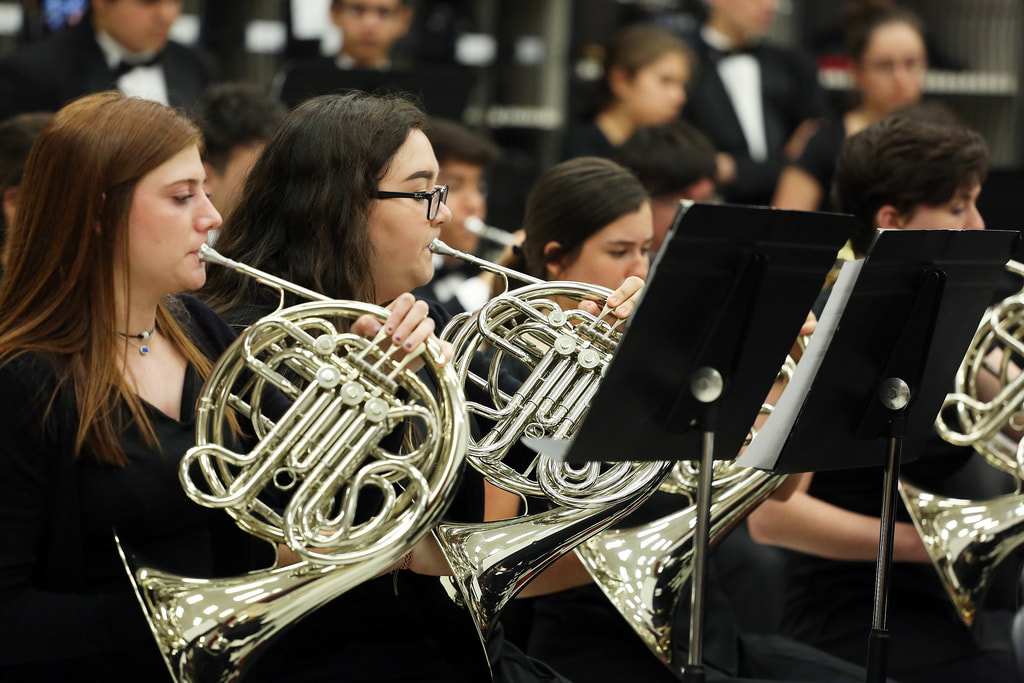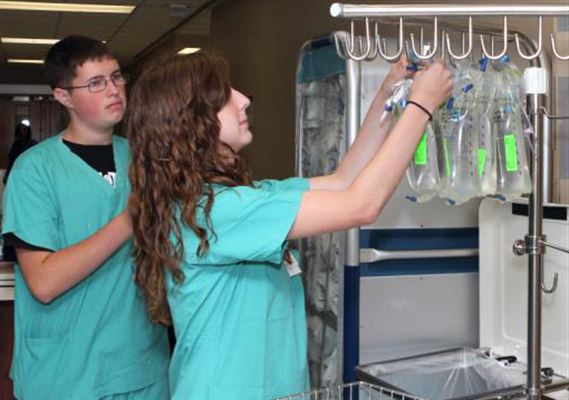|
Info on how COVID-19 might affect your high school experience as it relates to college applications:
For seniors receiving decisions letters back from colleges:
AP and SAT/ACT Exams:
College visits:
0 Comments
Please double check with schools as decisions notifications can change!
There's not much of a difference between Early Decision 1 and Early Decision 2 - except for the timing. Students that know that they have a first choice school, and will go regardless of being accepted elsewhere, have the opportunity to apply a bit earlier. The timing for these 2 rounds are different with Early Decision 2 deadlines closer to the deadlines of Regular Decisions, but that the notification of Early Decision candidates is typically in February instead of late March/April. Here's a list of schools with the option to submit and Early Decision 2 (ED2) application:
Here's a list - Stanford (our alma mater) comes out today!
Barnard College: Mid-December Boston College: December 5th, 5:30pm EST (Early Decision I) Boston University: December 15 Brandeis University: December 15 Brown University: Mid-December Cal Tech: Mid-December Carnegie Mellon University: December 15 Columbia University: December 12th, 7pm ET Cornell University: December 12th, 7pm ET Dartmouth College: Mid-December Duke University: December 15th Emory University: By December 15 Georgetown University: December 15th Harvard University: Mid-December Harvey Mudd: December 15th (decisions mailed) Johns Hopkins University: December 13th Middlebury College: Mid-December MIT: December 14th, 12:14pm ET New York University: December 15th (Early Decision I), February 15th (Early Decision II) Northwestern University: Mid-December Notre Dame University: Mid-December Pomona College: By December 15 Princeton University: December 12th Stanford University: December 6th, 4pm PST Swarthmore College: By December 15 Tufts University: Mid-December Tulane University: November 20th, 4pm CST (Early Decision), December 19th, 3:30pm CST (Early Action) University of Chicago: Mid-December (Early Action and Early Decision) University of Michigan, By December 24 University of Pennsylvania, December 16th, 7pm University of Virginia, December 6th, evening (Early Decision), January 31st (Early Action) Vanderbilt University: Mid-December (Early Decision I), Mid-February (Early Decision II) Washington University in St. Louis: Mid-December Wellesley College: Mid-December, ED Round I William & Mary: December 6th, evening (Early Decision I) Williams College: By December 15 Yale University: December 16th  You've been soul searching about transferring schools. One factor that's likely going to contribute to your decision making process is what challenges may lie ahead if you do decide to go for it. Here's a list of possible challenges to think about:

However, there are lots of positives that come along with transferring, especially if it's the right decision for you:
While there are lots of challenges to consider, with the right self reflection and research, you may come to the conclusion that it is the best possible decision for you. In which case, you'll be glad you did it!  There is a lot of narrative out there on thoughts for and against transferring schools - so you're not alone if you're reading this (about 25% of students actually transfer!). We've compiled it here into several topics to consider as you go through the process of deciding if putting in applications is right for you: Think twice:

So you've made it through a few years of high school and you're feeling pretty solid about your classes, grades, and extracurricular activities. There are a few more things to now focus on if you're college bound. The most obvious - which schools should I be applying to? Fit is incredibly important and it's something that we stress when working with high school/transfer students. It's about a great match so that you get a lot out of the school, but the school and its community also get a lot out of you as a person. Outside of the usual check on your numbers (SAT/ACT, GPA, etc.), here are a few pointers to consider in the process:
Best of luck in exploring the different schools out there! You're at the tail end of the undergraduate application process - the testing, the interviews, the essays are all behind you now. Whew - congrats on completing an intense process. And, if you're reading this article, my guess is that you also have choices ahead of you. Wonderful.
So, which college/university? I've compiled a few tactics to thoughtfully review the choices at hand.
Best of luck on your decisions! What does it mean?
Well, congratulations! It might feel like another rejection, but what the wait list means is that you're one of the applicants that the university finds qualified to be part of the community - just that there wasn't enough space for everyone. Due to the competitiveness of many colleges and universities, it means that there were several students just as qualified as you, and perhaps there was something else that someone else had that the admissions officers found would contribute to the mix of this particular class. Typically the difference between accepted students and those that are wait listed are arbitrary and minor. Pat yourself on the back for this accomplishment. What to do next? If you'd like to be on the wait list, you must actively notify the university. Follow the instructions included in the notice/letter and be sure to respond. There are several things to do and not do to better your chances of getting off the wait list. However, many competitive universities only accept small percentages of students off their wait lists, so be sure to put down a deposit at a school in which you'd be happy to go to otherwise. Most schools accept students off the wait list after the May 1 decisions requirements of those that were accepted before pulling from the wait list. Things to keep in mind:
Best of luck on school decisions!  My younger sister, there's a large age gap, just graduated from Oberlin. It was her absolute first choice school - turning down other exceptional institutions to be there. She was considering pursuing music - and Oberlin Conservatory is one of the top in the nation, if not the world. During graduation weekend, this stood out. The spirit of the school is very performance oriented - from the O!Circus to steel drums to taiko - there was a performance every afternoon during graduation/alumni weekend, somewhere on campus. I really enjoyed hearing the senior recitals at Finney Chapel - the musicians are quite talented! Oberlin's known for being quite liberal - and that showed. From man buns to an all-sex system for bathroom usage in dormitories, the school definitely inspires a tree hugger type feeling that you get when walking across the better known UC Berkeley (Cal). But, there's a more casual feel to the culture as compared to schools like BU, Tufts, Middlebury, Amherst. It's similar to how ballet dancers, perfect and tidy during performances, wearing gritty, ripped clothing during practice. Perhaps in the perfection of performance, Obies (as they call themselves) turn to a grittier, more laid back version of themselves as they walk through campus. The school is composed of 2 schools - liberal arts & conservatory. I do believe that the conservatory's culture spills over into the rest of the school's culture. The tour guide even said that although she was a violinist, her goals weren't to pursue music in college, but wanted to be around performance (and she will be minoring in dance). However, from conversations with students and actions of the students at graduation - there is a clear differentiation of the two programs. As there were only about 700 graduates total, each name was announced. The conservatory was first - and not too long after the completion of the dual degree students, the conservatory students began to leave their seats. Ok - 3 hour long graduation, I'd be tempted, too! But, if one of my best friends was in the liberal arts college - I'd stay put and get ready to cheer for him/her. This was telling for me. Not in a negative way, but to share with prospective students that the two are separate entities and with as much muddling there is between them, there is still a clear divide between conservatory and liberal arts students. It all makes sense - you'd be spending a lot more time in classes with those in the same school. Overall, Oberlin has an excellent academic reputation. Some of the newer buildings are LEED certified, the spaces are beautiful, the campus inviting. For the right student, what an awesome undergraduate experience! I would heavily consider the liberal arts school if you fit into the following categories:
I chose Purdue over University of Southern California. It wasn’t because Purdue is renowned for its engineering, but because California doesn’t snow. Coming from a tropical country, I yearned for a complete winter experience. But do I regret going to Purdue? Despite my lack of real research and snow or no snow decision making process – the answer is a clear cut no. Purdue has shaped me to the person I am today, one that I am proud to be.
Purdue is a great school to study engineering, which is a common thought about Purdue. But it wasn’t until I went through Purdue’s engineering program that I came to realization what that actually meant. The first year was a “filtering” process where I was able to witness many students who were unable to cope with the rigorous curriculum, switch majors. But it was through this selection system that I got the most out of Purdue’s engineering program. Because of this “filtering,” all the students that go on to be your closest peers are smart and hardworking, making academic life competitive, rigorous, and rewarding. At Purdue, opportunities to grow, succeed and learn are plenty. Purdue hosts the largest college career fair on campus in the United States, with many dream companies such as Microsoft, Google and Apple coming to recruit talented students every year. But it was the excellent service provided by Purdue’s career center that made all the difference – they helped me land a job in the States despite being an international student. The people that I’ve met while being at Purdue constantly inspire and challenge me to grow personally and professionally. Through my involvement with the Society of Asian Scientists and Engineers (SASE) at Purdue, I was given the opportunity to personally talk to and learn from many top company executives, including the Vice President of P&G and Chief Counselor of BAE Systems, a chance that many wouldn’t have during their undergraduate experience. Their unceasing aid to student organizations allows us to have those great minds as our speakers during events. Luck was on my side as it turns out that Purdue is a great fit for me – despite my snow or no snow decisions process. -Gary Khoo, Lucent Education I applied to colleges thinking I knew what I wanted to do – become a pediatric dentist while completing a major related to science or engineering. That didn’t happen. But, I was given the freedom (without judgement – actually, with lots of encouragement) to find my real passions. I transferred from the Engineering school to the College of Arts and Sciences. Switched majors, then added a 2nd major. Coming from a family of engineers and doctors, no one could see it coming: I double majored in Child Development and Psychology.
I felt comfortable and open to new things at Tufts, making changes (and keeping my family and friends on their toes) because of Tufts’ philosophy and supportive action around academic exploration. For me, this is what I think really shines about Tufts – the belief that your years of college are a time to explore, learn what you hate, what you’re indifferent to, and what you love. Other insider tidbits about the university that I think everyone should consider are:
http://www.tufts.edu/ -Agnes There are several logistical factors that go into choosing a school before you start even talking about fit. Included in those are: cost and location. These are the first two topics that I suggest parents to focus on when discussing options for college prior to diving into the nitty gritty. These can really be deal breakers when it comes to making the decision as a family in which colleges/universities to apply to. This is also the time to consider application to some schools that might be out of geographical or financial reach because they are such great opportunities that you’d like to test out the waters (see what financial aid package comes through or make a visit or two to Colorado?) prior to making a final decision to rule it out.
Ok, the next section is the nitty gritty I mentioned above – it’s about fit. What type of college, surrounding, environment will help you thrive and accomplish your future goals – that’s fit. There are a ton of components to fit and what will be the “best” college to help you thrive. First consider the items below and what your preferences might be.
You now have a good idea of what types of schools you should be looking at. Coupled with your test scores and school grades/ranking, you have a good idea of where you will fit on the spectrum. For students looking to be at a more competitive or rigorous school, you might consider taking this information to the ranking reports and see which schools might be a good fit. Others might use a resource like... http://collegeapps.about.com/od/choosingacollege/u/choose_a_school.htm ...to narrow down on small class sizes, large campuses, or programs with a lot of academic support services. Okay, I know that feels a bit backward because I haven’t yet talked about a good academic match. Well that’s because for the majority of students don’t have a really specific niche yet and that’s because many students haven’t experienced enough to know what they don’t know about the opportunities in careers in the world. For the majority of students, I’d recommend having a general idea of the industry or job function you’d like to go into after college and narrow down the application list to those that have that type of program available (think broad: marketing = marketing, psychology, sociology; business = applied math, economics, business; teaching = child development, psychology, education). If in the rare case you are one of those high school juniors/seniors that knows what they want to be – the above list is still something to think about, but you may want to apply the thought topics to list of schools that already exists for your specialized interest (music conservatories/colleges, programs with strong pre-med or combined degree programs, business schools, etc). The next step after creating a solid list (the usual is between 7-12 schools) is visiting them (if you haven’t already) and making sure the schools are diversified in terms of possibilities for acceptance (reach schools vs match schools). Good luck in finding a few great choices for your best fit! The title to this article is pretty intimidating. If you’re a college senior (or rising senior) and starting to get serious about going to more selective schools, a good start to writing your essays is to outline and highlight important pieces of your life. You can also polish this outline to use along with your resume when you ask your teachers, coaches, and mentors for recommendations.
Ok, you’re ready to get started? The easiest way is to start from the present and start listing your biggest highlights from high school, some of which will already be on your resume. Then think back further to highlight various aspects of your life. Have you encountered birth or death? Have you led a group of your peers in a petition? Have you started your own business selling lollipops you made at home? Are you your grandma’s favorite? Were you overshadowed by siblings or cousins? Did you argue with your parents about getting serious about swimming instead of tennis? Next, think back on the little things that have happened in your life that might have impacted you in a big way. What are the inside jokes your friends have about you? Are there stories that your parents tell about you to their friends? Check in with your friends and family and ask them about what they felt were big moments in your life or the highlights of your personality. Now that you have a good list of highlights, start to think back on each of these moments in your life and write a few phrases about how they made you feel, what you learned, or how it affected your future goals. For some of the moments, you’ll have a hard time articulating, others you’ll realize that they were defining moments in your life. After completing this portion of the exercise, start to prioritize the moments that you’d like to share with the college admissions officers. Mainly, prioritize the moments that truly represent who you are and help to share your unique story with application readers. Here’s an example of how your outline might look: -Brother is born (I was age 3) -I used to watch him in the back of our van as our parents shopped; we always rough housed by I once flipped him so hard that I could tell this was unlike any other time. This is when I realized my responsibility for him. -Big family dinners each week -We traveled over an hour each week to visit the family on my dad’s side; with over 15 cousins and still counting -The inside joke of the family was that my cousin J was super talented, cousin F was a genius, and I was the cutest of them all; took this to heart and found a passion I could work hard at and excel at in my own terms Now that you’ve put together some important moments and lessons from your personal history, you have a rough outline to work with. As suggested earlier, you can now pick out the pieces that you feel will convey who you are and make you shine to include in your college application essays. However, your application doesn’t include just your essays. With the outline that highlights your life, you have a lot of good information that you can still share with the admissions committee. Before putting the essays together, it’s time to think about how to strategically piece together an entire application package. As an exercise, make columns for the different components of your application: essays, resume, and interview. With your “highlighting your life” outline, think about how you’d categorize the top 10-15 topics. Is the topic one of the easiest to describe in two sentences or less? Then it’s probably best in your resume. Is it a deep personal philosophy? That might be better suited for one of the essays. Is it about one of your favorite teachers, but doesn’t really fall into something you can write a whole paragraph about? Perhaps save that for the interview since many interviewers ask about your favorite class or teacher. Many applicants sit down and tackle each component of the application separately, however, the admissions officers will be looking at the whole package – so you should be completing it as a whole package. Take the time to be intentionally strategic about what you want your entire application to convey about you. |
About Lucent:College, Graduate School, and Career Coaching. Archives
May 2022
Categories
All
|



 RSS Feed
RSS Feed
